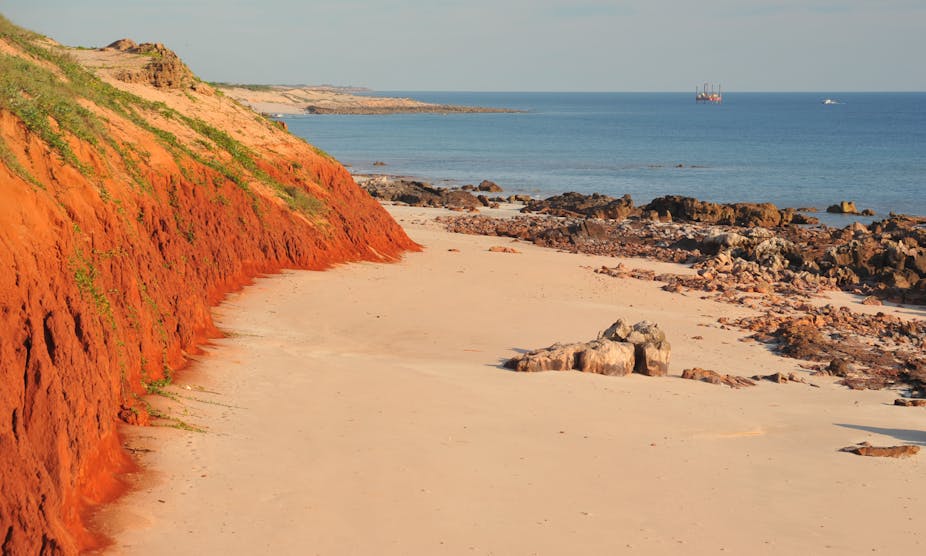When residents from the tiny town of Bulga won a three-year court battle to stop Rio Tinto expanding an open-cut coalmine beside them, it was hailed as a victory for David over Goliath. Yet the type of legal aid that helped those Hunter Valley residents last year may soon be much less widely available.
The right of individuals and local communities to challenge contentious development projects has been dealt a severe blow by the federal government’s axing of A$10 million in funding for Environmental Defenders Offices (EDOs), which provide not-for-profit legal aid.
During my 17 years as a judge in South Australia’s Environment, Resources and Development Court, I presided over several cases that would never have made it to court without the assistance of EDOs.
But from July 1 this year, the nationwide network of nine state and territory EDOs will be left dangling by a thread, with several offices potentially having to close as their future becomes unviable.
Affordable legal option
While this has been painted as necessary budgetary belt-tightening and a realignment of legal aid priorities towards “the vulnerable and disadvantaged”, it is also true that EDOs have been the target of industry lobbying. The New South Wales Minerals Council campaigned for the withdrawal of state EDO funding, and argued before last year’s federal election that public funds should not be used “to support extreme anti-mining activists”.
EDOs are often the only affordable legal option for communities and landholders who find themselves confronted with major development projects like mines, natural gas processing plants, coal seam gas fields and shale gas wells, or with new government planning policies that threaten citizen rights, local biodiversity, indigenous culture, farmland, clean waterways and other public interests.
Community groups, represented in court by EDOs, have succeeded in either stopping or imposing more appropriate conditions on a range of development projects that threatened their local environments. EDOs have given legal aid to a range of environmental causes including Western Australia’s proposed gas hub at James Price Point, Tasmania’s Tarkine forests, and the fight against Japanese whalers.
Without the EDOs, communities will have an even harder time competing in court with corporations and government agencies, armed with the best legal teams their deep pockets can afford.
Citizens seeking to stand up to them have no such resources, and in court can put at risk their own assets, including their homes, while trying to challenge powerful vested interests. Publicly funded EDOs have filled a gap where most public-minded citizens do not have the means to engage private law firms, providing expert legal support at modest or even no cost.
All of this is now in peril, and communities and the environment face being left without the means to access justice. At a stroke, the government has demolished half the total funding base for EDOs.
The offices in Western Australia, South Australia, Tasmania, the ACT, Northern Territory and northern Queensland each get 80-90% of their funding from the federal purse and face the prospect of closure over the coming year. Other EDOs in NSW, Queensland and Victoria have a mixture of law society, state government and private funding, but will nevertheless be forced to reduce their services.
Community-based public interest environmental law in Australia is now facing the biggest crisis of its three-decade history.
Legal counterparts
The first EDO was established in New South Wales in 1985, and the concept was embraced in other states and territories from 1992 onwards. Federal funding first began in 1995.
Created to defend the environment and heritage under law, and modelled in part on North American counterparts like the famous Sierra Legal Defense Fund (now Earthjustice), and the Canadian Environmental Law Association, the EDOs are nonetheless a distinctively Australian institution, one that enjoys strong support within the legal fraternity and the general community.
EDOs have never gone free of political controversy. In 1999 the Howard government placed a “litigation ban” on Commonwealth funding, which meant that EDOs could only use taxpayer funds for services like public education, community engagement, and policy and law reform. This ban stayed in place for nearly eight years, until it was lifted by the Rudd Labor government in 2007.
Now the new Abbott government has gone a lot further by cutting federal funding completely.
It is worth noting that this decision also coincides with:
Federal moves to devolve Commonwealth powers for environmental decision-making on development applications to state and territory governments;
Major development proposals across the sensitive Top End – northern Queensland, the Northern Territory and Western Australia’s Kimberley region – including for new coal, coal seam gas and liquefied natural gas extraction;
A recent series of strongly pro-development approvals, such as the decision to allow dredge spoil dumping within the Great Barrier Reef Marine Park;
Mounting evidence of national and international concern about the direction Australia is taking on environmental law and policy, not least the consideration by UNESCO this year to place the Great Barrier Reef on the World Heritage in Danger list, and the current attempt by the federal government to reduce the boundaries of the newly added parts of the Tasmanian World Heritage Area.
Tipping the scales
As I and anyone else familiar with the legal system knows all too well, access to expert counsel is not something that everyone can afford.
Australians and our environment will suffer if there is no real means for the courts to review development decisions against environmental policy and the evidence. Retaining the means of access to justice in relation to our environment is critical.
The downsizing or demise of Australia’s various EDOs could tip the balance even more in favour of development at the expense of our environment and communities without deep pockets. In doing so, it puts places like the Great Barrier Reef and Tasmania’s Tarkine wilderness at greater risk – and makes it that much harder for people in small towns like Bulga to have their day in court.

